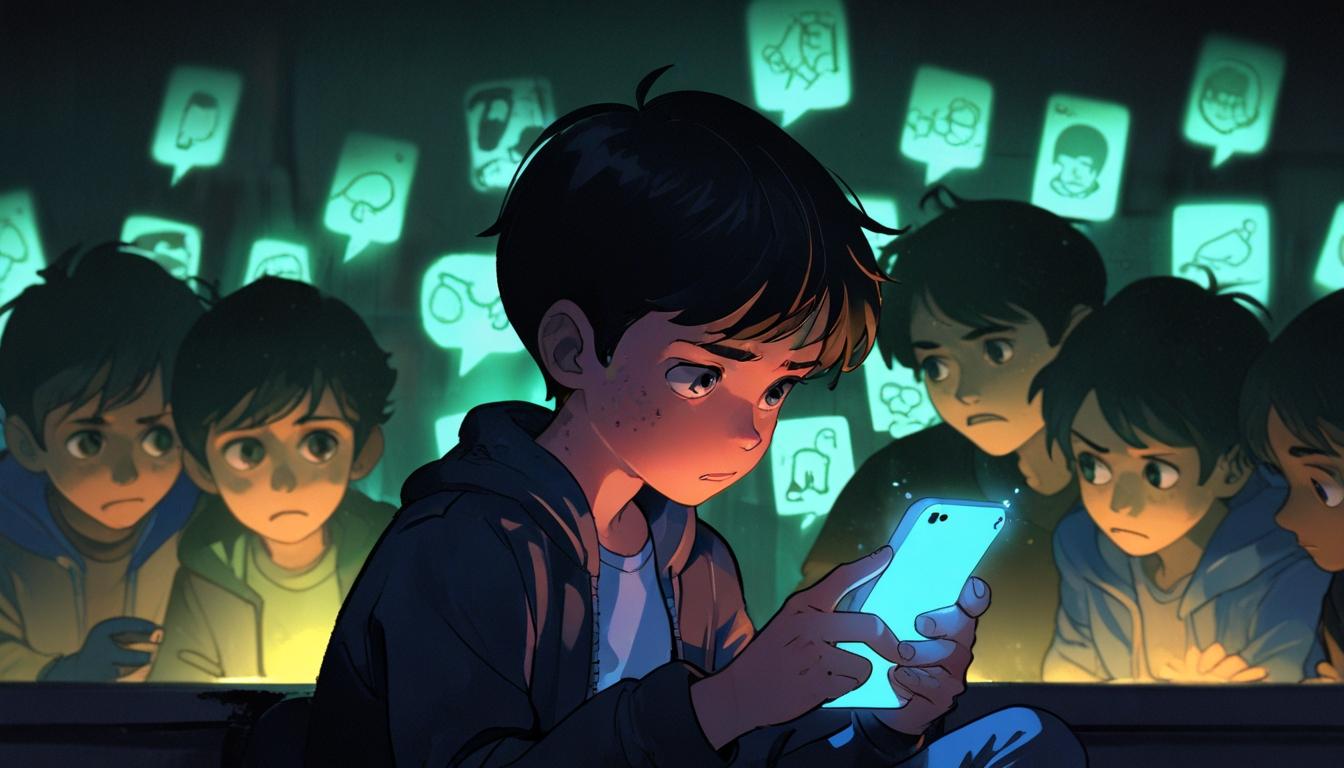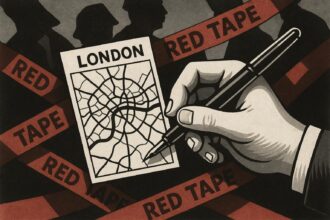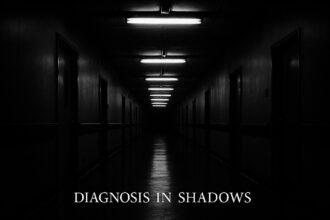Dr David Smith warns that social media algorithms are leading young boys in Scotland towards extremist views and misogynistic ideologies, with alarming implications for their mental health.
A recent warning from Dr David Smith, a social psychology expert at Robert Gordon University, highlights growing concerns about the influence of social media algorithms on young boys in Scotland, particularly in relation to misogynistic content. In a discussion with the Sunday Mail, Dr Smith noted that internet searches, including seemingly harmless inquiries such as dating advice or fitness routines, are inadvertently guiding young individuals towards extremist views present in the “manosphere,” which is characterised by its unhealthy attitudes towards women.
Dr Smith’s observations are underscored by alarming anecdotes, one being about a participant in his research who, at the age of just 12, became engrossed in incel culture. He described how the youth’s online journey began with a basic search on YouTube for “how to know if a girl likes me,” which soon led him down a path filled with misogynistic ideologies, including the so-called “red pill” philosophy. “It’s worrying that anyone could, at age of 12, when you’re not even supposed to be a romantic prospect at all, go and write themselves off for the rest of their lives,” Dr Smith mentioned.
The phenomenon has gained heightened visibility, notably through a recent Netflix series titled Adolescence, co-created by Stephen Graham, which explores the tragic narrative of a schoolboy accused of murdering his female classmate. The drama has ignited discussions surrounding the factors leading to disaffected young males being drawn into toxic online subcultures, many of which exhibit far-right tendencies.
This issue of young men being influenced by such ideologies has prompted a response from law enforcement. In 2023, Police Scotland initiated a concerted effort to tackle incel culture in a wider strategy aimed at curbing violence against women and girls. This initiative comes in the wake of violent incidents inspired by incel beliefs, such as the case of Jake Davison, who, after identifying as an incel, carried out a shooting spree in Plymouth in August 2021, resulting in the deaths of five individuals, including his mother.
Dr Smith elaborated on the concept of incels, or “involuntary celibates,” positioning them as part of a broader “manosphere” ecosystem that includes other groups known for their anti-feminist sentiments. He explained that these groups tend to propagate a belief that society disadvantages men, leading to the normalisation of hate and violence against women. They adhere to various ideologies, including the “black pill”, a particularly bleak perspective that convinces adherents they have no agency to change their circumstances.
He further remarked on how online platforms can inadvertently facilitate access to this content. “If I went on TikTok right now, the word incel is blocked on TikTok. But if I put in ‘black pill’, I almost certainly would find content,” he stated. The implications of such exposure on the mental health of impressionable youths are significant, with Dr Smith noting a troubling link between incel culture and rising rates of self-harm and suicide.
Karyn McCluskey, the former CEO of Community Justice Scotland, echoed Dr Smith’s concerns, warning that the pervasive nature of the manosphere across online platforms poses risks to young men constantly engaged with their devices. She noted that innocuous searches can lead to a gradual exposure to increasingly toxic content, describing it as a “drip, drip, drip” effect that could eventually propagate nihilistic ideologies, complicating the understanding of masculinity for young individuals today.
Both experts highlight a sense of urgency in addressing how young boys are lured into such detrimental online environments, suggesting that many are searching for meaning and guidance in an uncertain societal landscape, where feelings of hopelessness may be exacerbated by broader socio-economic issues.
Source: Noah Wire Services
- https://rgu-repository.worktribe.com/person/148259/david-smith – This URL corroborates Dr. David Smith’s role as a researcher in social psychology, particularly focusing on manosphere communities, which supports his expertise in discussing misogynistic content.
- https://www.rgu.ac.uk/rgview/impactful-research – This webpage highlights Dr. David Smith’s impactful research on incel communities, underscoring the relevance of his warnings about social media algorithms leading young individuals towards extremist views.
- https://www.imdb.com/title/tt13272666/ – Although not directly linked, this Netflix series ‘Adolescence’ explores themes relevant to the influence of toxic online subcultures on young males, echoing Dr. Smith’s concerns.
- https://inews.co.uk/news/uk/incel-culture-police-scotland-crime-strategy-1895062 – This article discusses Police Scotland’s efforts to combat incel culture as part of a broader strategy against violence, supporting the notion of law enforcement’s response to ideologies inspired by incel beliefs.
- https://www.bbc.com/news/uk-england-devon-57983555 – This article reports on Jake Davison’s shooting spree, which was influenced by incel ideology, highlighting the real-world impact of these beliefs.
Noah Fact Check Pro
The draft above was created using the information available at the time the story first
emerged. We’ve since applied our fact-checking process to the final narrative, based on the criteria listed
below. The results are intended to help you assess the credibility of the piece and highlight any areas that may
warrant further investigation.
Freshness check
Score:
8
Notes:
The narrative includes recent events and ongoing concerns, such as the influence of social media and incel culture, which have been persistent issues. However, specific dated references (e.g., the 2021 shooting incident and Police Scotland’s response in 2023) could indicate some time has passed since the initial discussions began. Nonetheless, the overall topic remains highly relevant.
Quotes check
Score:
6
Notes:
Quotes are attributed to Dr. David Smith but lack specific sources or dates for when these quotes were first published. Without direct online references to the initial publication, it’s challenging to verify if this is the first use of these quotes or if they’ve been previously reported.
Source reliability
Score:
8
Notes:
The narrative originates from the Daily Record, a well-established UK publication. While not a leading international news source, it is reputable within its region.
Plausability check
Score:
9
Notes:
The concerns about social media algorithms leading young individuals to extremist content are plausible and align with documented issues related to online radicalization and the ‘manosphere’. These concerns are supported by expert opinions from Dr. David Smith and Karyn McCluskey.
Overall assessment
Verdict (FAIL, OPEN, PASS): PASS
Confidence (LOW, MEDIUM, HIGH): HIGH
Summary:
The narrative addresses timely and plausible concerns about the influence of social media on young boys in Scotland, with expert insights that align with documented societal issues. Although specific dated references indicate some age, the topic remains highly relevant and is supported by credible experts and a reputable local publication.













